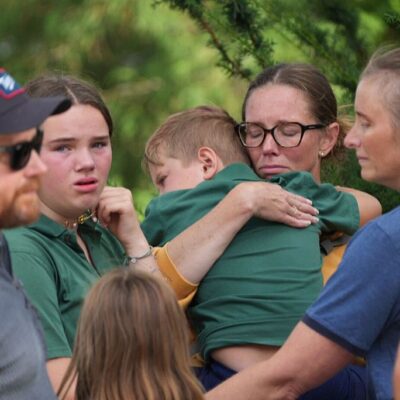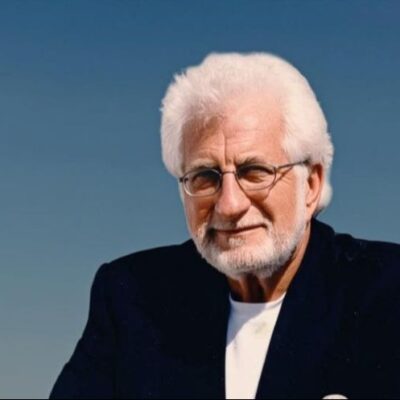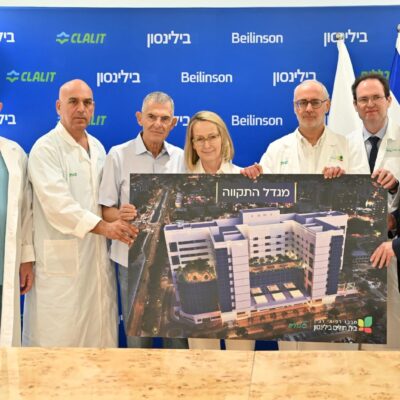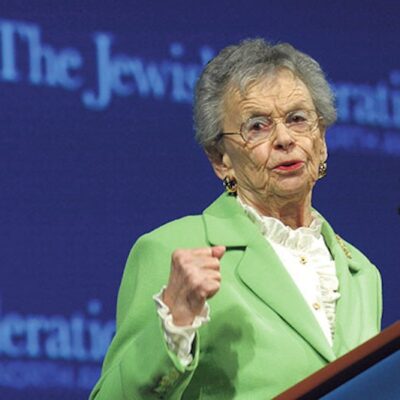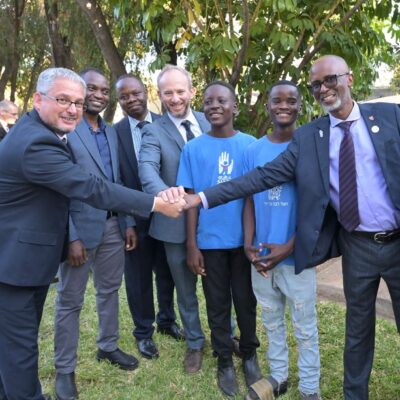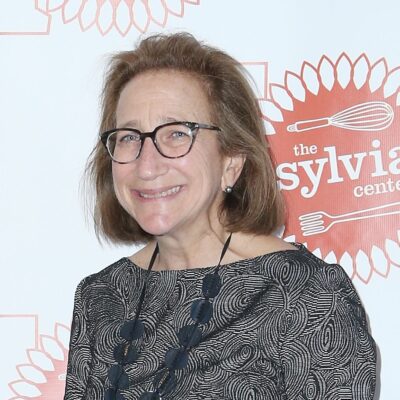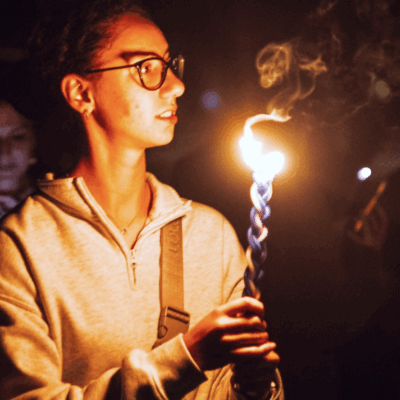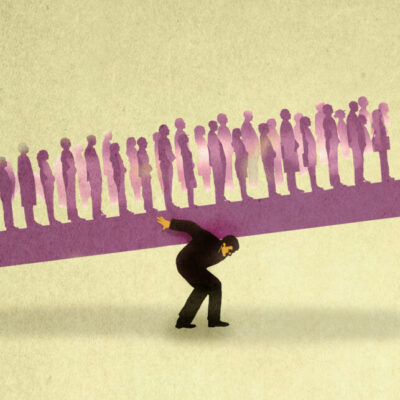Opinion
A CONVERSATION
‘Give a damn. Truly care about what matters to you’: Words to live by from Charles Bronfman
In Short
Rabbi Sharon Brous talks with Charles Bronfman about his life, legacy and the prize that bears his name.
Below is an exclusive excerpt from a conversation between Rabbi Sharon Brous, founding and senior rabbi of IKAR, and philanthropist Charles Bronfman. It was shared with eJewishPhilanthropy to mark the 20th anniversary of The Charles Bronfman Prize, which honors young humanitarians driven by Jewish values to make a global impact. A series of convening events Sept. 22-25 in New York City will honor two decades of Charles Bronfman Prize laureates, whose efforts tackling issues such as food security, healthcare, education, human rights, justice and the climate crisis benefit millions of people around the world.
The following has been edited for clarity.
Rabbi Sharon Brous: When your children decided to create The Charles Bronfman Prize, I think they had some sense that this would be a better birthday gift than a new set of golf clubs. What was it like for you to receive the perfect gift 20 years ago?

Philanthropist and Birthright co-founder Charles Bronfman speaks at a pre-gala event in his honor in Palm Beach, Fla., in 2022. Birthright Israel Foundation
Charles R. Bronfman: I almost fell over. I had not expected any such thing. It turned out to be the best gift I ever had in my life and one that I treasure incredibly. Every time there’s a new laureate, and I get asked to present The Prize to them, I’m almost in tears.
RSB: Over the years, as you’ve met the recipients of this award and been introduced to their work, what has taken you by surprise?
CRB: Initially the one question I had was how the heck can you have somebody under 50 receive a prize? I thought, who’s really done anything by 50?
I found out that people have done incredible things. And if somebody is good enough to do some humanitarian work by that age, they’re going to keep on going up and up.
RSB: In some ways, I suppose when we’re younger, we have fewer constraints. I mean, we started IKAR when I was 29 — and, I think, was I out of my mind?
CRB: What makes IKAR different from other congregations or other movements within the religion?
RSB: When I moved out to Los Angeles in the early 2000s, I met so many creative young people who were disconnected from Jewish life. They weren’t members of synagogues, but they were hungry for community and for connection and for ritual. I sensed that if we didn’t do something different — something both imaginative and mission-driven — we were going to lose a whole generation. So we built the community at the intersection of two key questions: How can we mine our Jewish inheritance to live lives of meaning and purpose, and who are we called to be as Jews and human beings in a time of moral crisis? We knew that if the right people showed up, something meaningful would be born.
IKAR’s origin story is actually deeply connected to the thinking behind The Prize. The laureates are all people who, in some way, saw a void in the communal landscape — who recognized a need and took the step to build something new.
CRB: They’re all entrepreneurs.
RB: They’re all entrepreneurs. Right.
CRB: You don’t have to be an entrepreneur just in business. I like to think of myself as an entrepreneurial philanthropist.
I was not the greatest businessman. I really didn’t love business. Then came “Heritage Minutes.” [Ed. Note: “Heritage Minutes,” a bilingual series of history-focused, 60-second short films, aired like public service announcements and depicted a significant persons, events or stories from Canadian history. After its original 13-episode run, the continued broadcast of “Heritage Minutes” and the production of new ones was spearheaded by Bronfman’s CRB Foundation.] The second thing was the Montreal Expos. Bringing a major league baseball team to Montreal was not about making a profit but about helping my city, my province and country, because I’ve always believed that Canada should be emotionally closer to the United States. It worked, and that sent me on a career path of entrepreneurial philanthropy, which I’ve had a wonderful time doing. I believe it’s done more for me than I’ve done for it.
RSB: When I look at your life and your kids, that commitment to give back seems foundational to who you are.
CRB: I was raised to give to the society in which we live. My parents made sure that all of us were instilled with that mindset. My late wife and I started a philanthropic foundation. We made our mistakes early on because you have to learn from them. You learn a heck of a lot more from mistakes than you do by victories. We tried a few more things, and suddenly everything started to click.
RSB: I’m curious what you see as the great urgency facing Jews and humanity in this moment in history. What do you wish we would pay attention to? Do you feel there is a great sense of need that we should be responding to?
CRB: Hate. Hate is consuming the world. Right now, there’s a society of hate, not love. And maybe you don’t need love, but you do need respect. If you follow one faith and I follow another, I might not believe that your faith will help me, but I still respect you and your beliefs.
Let’s look at Birthright for a minute. The idea behind it was to address a situation where many young people, had their bar and bat mitzvahs and were stuck there. They would often stop going to synagogue except for the High Holy Days and wouldn’t get involved in the federations or other social and community events. It was disheartening. So, Michael Steinhardt and I took the bull by the horns and said, let’s do something about it. And Birthright, as you know, has become incredibly successful.
RSB: I want to ask you about Jewish peoplehood. Some now argue that it doesn’t really exist — that the last two decades have revealed the deep divisions in the Jewish community. They believe there isn’t any coherence or organizing principle to the Jewish people.
CRB: I have to argue against that. I believe that Jews share a common identity. When our kids visit Israel and meet with Israelis, they discover a sense of camaraderie and realize that we do share the same values.
RSB: Even more so, I hope that a sense of family can prevail even when we don’t see the world the same way.
In Psalms, there’s an idea: “kosi revaya,” my cup overflows. And the Rabbis teach that at the end of the day, our lives are judged by our generosity, our righteous anger — our ability to be stirred up by injustice — and our sense of abundance. When you reflect on your life, can you perceive the fullness of your blessings?
CRB: I am very fortunate in my life, in my heritage, my parents, my family and in what I do. Now, at 93, I am stepping back from a lot of the things that I was involved in. I’ve embraced the title of emeritus. Emeritus is quite nice.
RSB: It’s like the auntie of boards, you know? You get all the love, but get to go home when the kids get cranky at bedtime. Right?
CRB: Yeah. That’s great.
So, I believe that my life does overflow.
RSB: And if we’re judged by our generosity, I think it goes without saying you’ve given back so much and impacted so many.
CRB: A lot of people wonder why I’m so involved with philanthropy. Frankly, I have never thought about it as that. I call it a part of being a citizen. I’ve chosen to become a philanthropic entrepreneur. It’s worked out very, very well, and I’ve enjoyed every minute of it. I discovered that in philanthropy, as in anything else, you have to fight for it; it doesn’t just come into your lap. I remember with Birthright, many people laughed at us, saying, “How can anybody learn anything in 10 days? It’s ridiculous. Steinhardt and Bronfman are just two rich idiots who don’t know what they’re doing.” I responded, “Well, let’s see.” The reality is that Birthright is thriving 25 years later.
RSB: So let’s close with this question: What message you would like to share with future generations? How would you like to be remembered?
CRB: First off and foremost, what I would say to younger people is this: Give a damn. Truly care about what matters to you. Don’t go through life just saying, ”Okay,” because that’s not very fulfilling.
As for me, I too plan to keep going and keep caring. Do I think that there are more things to do? Yes. I like to be involved in those things that matter to me. And I guess, like most of us, my legacy is, as said by our sages, l’dor v dor, from generation to generation. My children are all good Jews and proud of who they are. That’s my real legacy.
RSB: Good Jews and good human beings.
CRB: Well, if you’re a good Jew, for sure you’re a good human being.
RSB: I want to bless you, Charles, with strength and good health so that you can continue to fulfill the great dreams that you have for your family, for the Jewish people and for the world. And I thank you for the generosity of your heart and spirit that has made so many so many wonderful blessings possible in our society. I really hope you know what an inspiration you are, and how much gratitude we hold to you.
CRB: Oh my goodness. I want to repay that compliment, but in spades. You’re very much younger than I am. You’ve already made a huge mark in the world, and I hope you just go keep going on and on and on.
Charles Bronfman is a business executive, philanthropist and award-winning author. He is the co-founder of Birthright Israel; the founding co-chairman of Historica Canada and of the McGill Institute for the Study of Canada; and a member of the board of directors of the Israel Policy Forum. He co-authored The Art of Giving, The Art of Doing Good and Distilled: A Memoir of Family, Seagram, Baseball & Philanthropy.
Sharon Brous is the senior and founding rabbi of IKAR, a leading-edge Jewish community based in Los Angeles, and author of The Amen Effect: Ancient Wisdom to Heal Our Hearts and Mend Our Broken World, a national bestseller.

